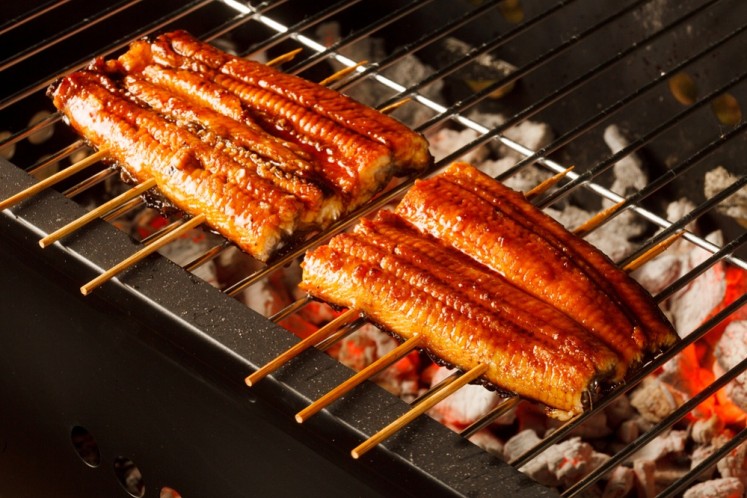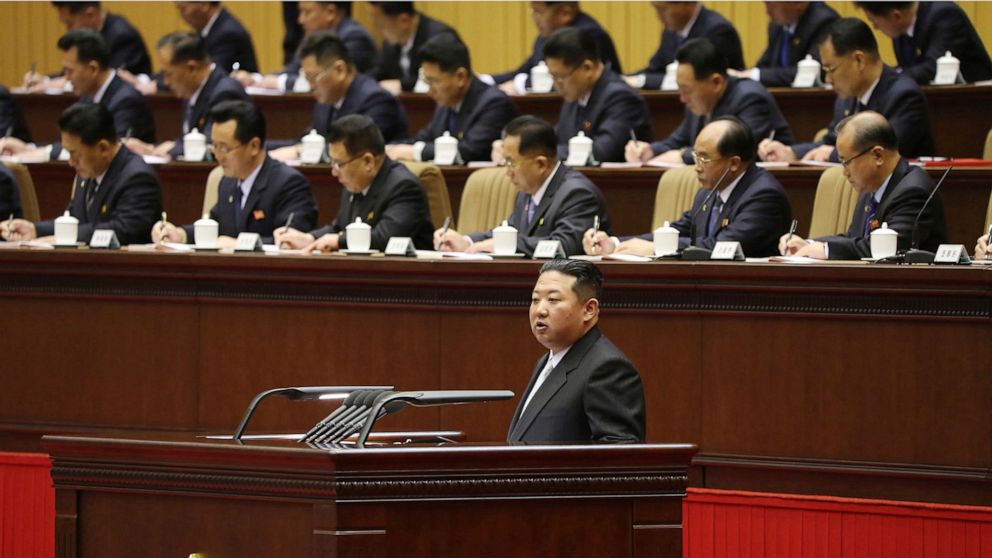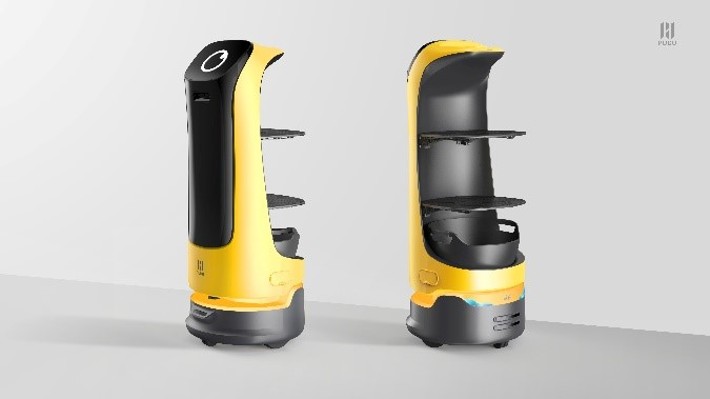[ad_1]

“Poverty is not an accident. Like slavery and apartheid, it is man-made and can be removed by the actions of human beings.” -Nelson Mandela
SNA (Yokohama) — The main entrance to Yokohama’s Kannai Station is crowned with two gigantic, electric blue helmets–symbols of the DeNA BayStars baseball team, which has its home ground at Yokohama Stadium just a stone’s throw away.
This is baseball country, and during the season noisy, drunken fans can be seen decked out in their team colors crowding around the stadium precincts in the steamy summer evenings, chanting and laughing after a game.
American Patrick Curtin was one such baseball fan and he used to regularly go there with friends to see games. Walking back to the station afterwards, he would often notice the same homeless man who was permanently camped near the station and he started giving him leftover food.
“One time, I was going to a game… I was actually on the train coming in and I looked out and I saw him sitting there. So before I came to the stadium, I bought a sandwich and a snack and I went to give it to him. And my Japanese teacher, who I was going to the game with, was too shy to even come up to him. He was embarrassed.”
This experience stayed with Curtin and a seed was planted.
Now, many years later, he is back in the Kannai Station area, this time not to watch baseball, but to lead the Yokohama Spring Homeless Patrol.
It is a chilly Saturday winter evening and Curtin and the other mainly foreign volunteers are gathering in front of the South Exit, collecting the various donated items and food they have prepared to hand out to the homeless. There are sandwiches, rice balls, biscuits, chocolates, canned fish, socks, underpants, batteries, kairo hand warmers, and various other necessities.
The first port of call is a predesignated spot nearby where a large number of people, primarily men middle aged and older, are lined up single file in a very orderly fashion along the length of the train track. Most of them look homeless, but there is no way to know for sure and Curtin doesn’t think it is important to draw a line.
“Its not our job to distinguish if they are homeless or poor. No normal Japanese person would line up for food. The homeless are the bottom rung, but just above them is a really large group of people who are just really poor and the Japanese government is not doing anything. They need help too,” he says.
The volunteers, a group of eight from Indonesia, Costa Rica, Japan, Singapore, and the United States, including two children, then proceed to walk the length of the line, giving out the goods and greeting the recipients who respond with a sumimasen (I’m sorry for troubling you) or arigato gozaimasu (thank you very much). It’s all very organized, orderly and well mannered—all very Japanese.
Next the patrol heads to an underground tunnel near the north entrance of Kannai Station. Here there is a permanent population of about fifteen to twenty homeless who line both sides of the tunnel sitting or sleeping in their small cardboard box encampments. The volunteers slowly make their way along the tunnel making small talk with them and handing out more supplies.
The oldest is a surprising 82 years of age and has been living on the streets for forty years. A Yokohama native who would rather remain nameless, he says he can clearly remember the Pacific War.
“When I was six years old both my parents burnt to death in the firebombing of Yokohama and I, and my siblings, were sent away from the city as refugees,” he says.
He is the only male child in his family and lost contact with his four sisters after they moved away to get married, but says he wouldn’t ask them for help even if he could find them: “I don’t like to ask for help and I prefer to do things for myself.”
He says that the most difficult thing about the homeless life is finding food, although the number of people coming to help them has increased greatly over the years.
“Three or four groups come per day to help. I have a bad leg, but a nurse comes there to treat me and gives me medicine. The best thing would be for the government to build us houses and help to find us work. I don’t smoke or drink alcohol much, so I don’t need much money for daily life,” he says.
The final mission of the patrol lay along the east side of Yokohama Stadium. Numerous homeless are scattered around the area, most sleeping in the open at the foot of the walls of the towering stadium complex, which provides a little shelter from the biting western wind, although they are still very much exposed to the cold.
A middle-aged man with the surname Watanabe, who is also a Yokohama native, has been homeless since September last year. An unemployed construction worker, Watanabe says he lost all desire to live and attempted suicide by carbon monoxide inhalation.
“I burned charcoal briquettes in a tent by the beach in Chigasaki, but failed because wind blew the tent and it caught on fire,” he says. “I had no reason or purpose to be alive.”
Afterwards, Watanabe was brought by authorities to Shonan Kamakura General Hospital, but as he had no money, he says he received only the very basic treatment. Watanabe says he hasn’t applied for welfare support from the government because it is very strict in Japan and there are many background checks.
He adds that even though he is homeless, the most difficult thing in his life is human relationships. He believes Japanese people are prejudiced against the homeless and he finds the reactions of passersby especially upsetting.
“First they look and then they look away and walk away. Japanese think homeless are scary, and women, in particular, walk faster if they know you are homeless. If children stare, then the parents turn their kids heads away as they don’t want their children to see us. Even though we are living like this, we are still humans like everyone else. I wish people would not be prejudiced towards the homeless,” he says.
Yokohama Spring Homeless volunteers Eric Ng and his wife Akiko Suzuki are taking the opposite approach to what appears to be the norm in Japan when it comes to exposing their children to the homeless, and they actually brought their two boys, Riku and Rita, with them on the evening patrol.
Eric, who comes from Singapore, had been a volunteer on the patrol before and told his wife about the experience. “She said you should bring the children and let them see all this because they are Japanese. Let them see their environment, so when they grow up they understand. This is their people and this is how they suffer. So when they grow up, they know what to do,” he says.
Riku, 11, says it was his first time meeting homeless people. “They were friendly and kind, but I felt sorry for them,” he says.
Their mother, Akiko, who is from Yokohama, thinks at the heart of the homeless issue is the Japanese government taking advantage and skirting responsibility.
“I think the government knows Japanese people don’t easily ask for help. I think they take advantage of this. I think people who need help should ask for help, but they don’t. It is due to the way people are educated here. People are brainwashed to never ask people for help. This is kind of a mental problem that Japanese have. Even my own neighbors… I don’t know if they have enough food or not. If they didn’t, they would probably be ashamed to ask other people for help,” she says.
As he wheels his cart stacked with empty boxes back to his car, Curtin seems pleased with how the evening went and estimates they were able to deliver food and supplies to about 140 people in need. He says the key is to focus on what you can do to help now and not get too caught up in the big picture. “We are just doing it one patrol at a time. We try to feed 100 plus people. We can’t change their lives, we can’t change the social system. We made their lives a little less miserable for one night. It’s all we can do,” he says.
Seifeddin came from Tunisia to Japan in 2019 seeking a better life, but he did not find it. He is middle aged and healthy, but like many of the Japanese day laborers who drift down to the Kannai area from the nearby slum district Kotobukicho, he is trapped in a rudderless life of working poverty with no relief and no permanent home to go to. He just wanders the streets at night alone and cold carrying all his possessions in a plastic bag.
A qualified engineer in the field of offshore drilling, he says he lost his job after the company he worked for in his home country closed due to corruption. “There are no jobs in my country. I was just looking for the easy way. I thought as there were many economic troubles in Western countries, in the East there are opportunities for us. I don’t know, maybe it was a mistake,” he says.
Since arriving in Japan, he has worked as a laborer on building sites, but his situation is increasingly becoming perilous, and he is homeless much of the time.
Prior to August last year, he had his own apartment in Yokosuka and was a permanent worker, but he lost his job after Covid-related economic pressures caused the business at the company to decline and soon the apartment was gone as well.
When he can, he finds construction work through Facebook, works for a few days, and can afford to stay a few nights in a cheap guesthouse in Kotobukicho. But the money is never enough and soon he is homeless again.
“Sometimes I sleep in public toilets, just for a few hours, if I don’t have money. If I had money, I wouldn’t be in this situation,” he says.
Seifeddin says what he really wants, though, is not money, but regular work. “If you give me money, tomorrow I’m gonna spend it and I’ll ask another time about money again. If you give me work, and work with daily payment first of all, then I can look after myself.”
He says he has tried many times to get help, but this has been met with indifference, and he says as a foreigner he is especially isolated. “It is hard to find a job, find a house, if you don’t speak the language. I was suffering and tried many times to get help, but no one cares. No one cares about you,” he says.
Seifeddin adds that, unlike some foreigners, such as the Chinese or Pakistanis, who have sizable foreign communities in Japan which they can fall back on for support, there is no Tunisian community here to speak of.
“If you fall down outside your country, nobody will support you. Me, I don’t have anyone to support me, so if I fall down I’m gonna stay down for a long, long time until I get my power and my energy to rise again,” he says.
Seifeddin acknowledges that he could call his family in Tunisia, but his parents are elderly and incapable of helping. He adds that his 80-year-old father, who was handicapped by a stroke three years ago, recently caught the Omicron coronavirus and is now in critical condition in hospital in Tunisia.
“I never tell them about my situation. Why make people worry about you, when those people will be sad and suffering and they cannot help you. So I just say, ‘my situation is good… Just say, ‘I’m okay,’” he explains.
Seifeddin understands he is trapped in a cycle of poverty, but doesn’t know how to get out of it. “In the middle of the storm, you are stuck. You are stuck in one circle. If you work out how to pay for your food or accommodation today, then you can’t take care of tomorrow. It is day by day,” he says.
He relates that the hardest thing about his situation is the mental aspect and he admits he sometimes has suicidal thoughts. “I have depression, real real depression, and fear. You fear the future. It is hard for you to survive and manage your mind looking for work, looking for where you live, looking for food.”
He adds that before he came to Japan, he had a normal life, and was a social and cultured person, but now that is lost.
“I’m not lonely, I’m fucking lonely. If I have work, I go to work. If I don’t have work, I just sit alone… You want to be stable. Today you have food, tomorrow no. And this damn thing happens again and again like a cycle. And this makes you crazy. This makes you crazy and you don’t want nothing. You just want to have a simple life, just a simple life. Simple work, to go back to your house, cook, take a shower. The normal life, the basic human being life, but you cannot find it…”
How to Help
Yokohama Spring Homeless Patrol (YHSHP) delivers food and other necessities to the homeless and needy in the Kannai Station area of Yokohama area two Saturday evenings per month. Contact their Facebook page for information on attending patrols and/or making donations.
An affiliated group, Tokyo Spring Homeless Patrol (TSHP), holds weekly patrols in Shinjuku on Sundays and in Ueno on Wednesdays, as well as the Tama River two or three times per month. They also maintain a Facebook page.
Another Kanagawa-based volunteer group helping feed the needy is Food Not Bombs Yokosuka, which hosts a free vegan meal for the public on the fourth Sunday of every month starting at 6:30 pm in Shiakushomae Park, Yokosuka. This group collects food and produce that is edible. but normally would be discarded, typically for minor cosmetic defects. This becomes free meals available for anyone, regardless of background. Their Facebook page is here,
“In doing this, we both feed folks that need the food, as well as highlight food waste; roughly 40% of all food ever produced is tossed, despite being edible. As such, we literally produce enough to feed the planet. Production isn’t the issue; access to the food is the problem,” says event organizer Chris Warren.

For breaking news, follow on Twitter @ShingetsuNews
[ad_2]
Source link


















